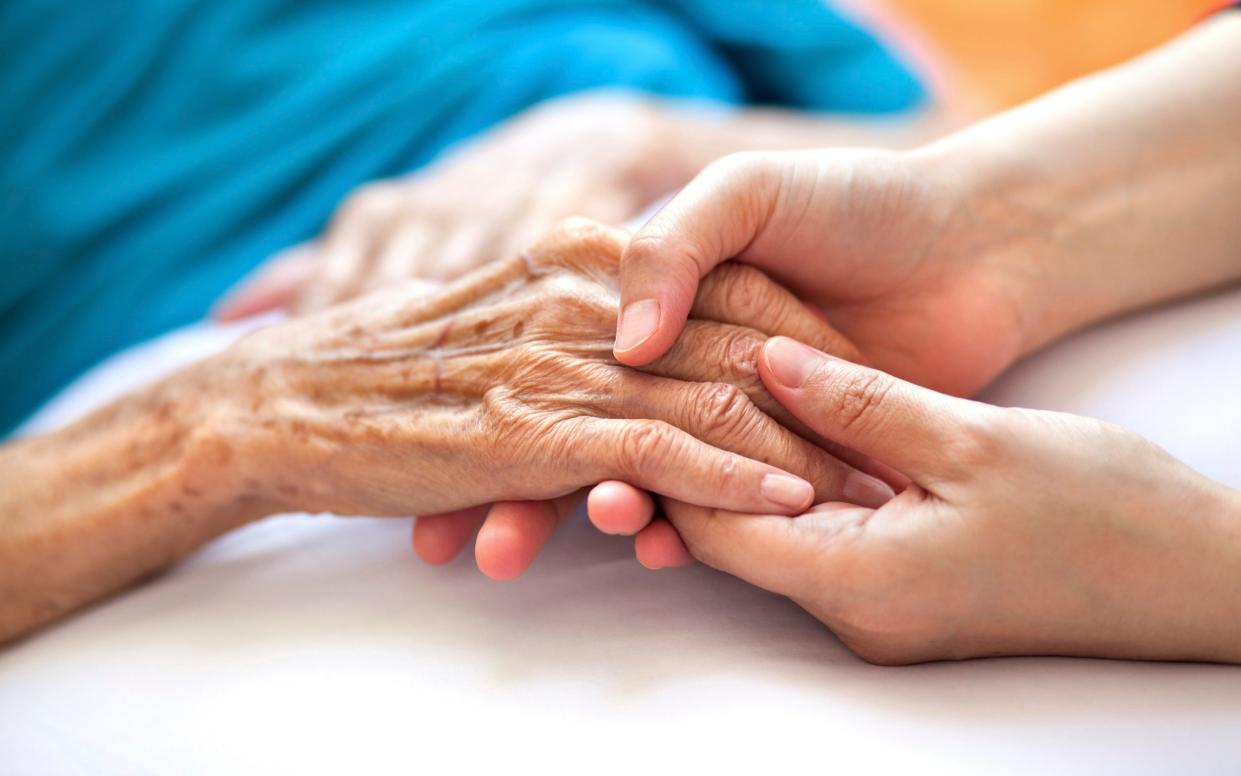End-of-life care 'no better than it was 70 years ago'

Loneliness afflicts the majority of people at the end of their life, according to a report that found palliative care has not improved in 70 years.
Poverty, social isolation and not being able to die where they want are all common issues causing “considerable hardship” for people as they die.
Despite advances in healthcare since 1952, the “end of life care system has not kept pace”, the charity Marie Curie concluded in an analysis comparing care today with 70 years ago.
It found that 97 per cent of carers were looking after patients who were lonely at the end of their life, while less than a third said people they cared for were always able to die where they wanted.
The report, co-produced by The Queen’s Nursing Institute, found that people who lived alone were more likely not to have their dying wishes met and highlighted greater challenges in caring for people in rural areas due to demand on services.
Around half of respondents were caring for people using a food bank, while two thirds looked after people who were struggling to access medication, information and transportation.
In one case, a man’s father “fell through the cracks” after his GP said district nurses would be in touch to arrange palliative care, but “it never happened”.
Forced to fight for father’s dignity
Darren Lawrence, 55, from Port Talbot, Wales, was forced to fight for the dignity of his father, Graham Lawrence, who had terminal mesothelioma due to asbestos exposure, and later died in April 2022.
“My dad wanted to be cared for at home, to be pain free, and have dignity,” he said. “It’s a terrible tragedy that the last two weeks of his life were the way that they were.”
“Nobody in the hospital knew what was going on and his pain wasn’t being managed properly. I came in one day to find him in a chair with a pillow over his head, screaming into it.”
He said his father went into a hospice instead and was there for four days before he died, but should have been there for a week.
“They said the delay was because of Easter, but that’s not good enough. You can’t choose when you become terminally ill,” he added. “If he hadn’t had me advocating for him, I don’t know what would have happened. In the last 48 hours, dad was comfortable in the hospice, but in the weeks leading up to that point, he was in extreme pain and without dignity. That shouldn’t happen to anybody.”
He called for a dedicated helpline as currently it’s “impossible” to find out what’s going on.
‘No one willing to help’
In another case, Tracey Bennet from Doncaster cared for her father, Michael Woodward, at home before his death in January 2021, but struggled to get out-of-hours support.
The 54-year-old said they had “no one to turn to” after a terminal cancer diagnosis except a “phone number for office hours”.
“When dad’s time came, no one was willing to help,” she said. “Dad had a fall at night trying to change his stoma. I called the district nurses, as they promised they would help with this when he was diagnosed, but two hours later no one had arrived.”
Ms Bennet said she called the paramedics, who asked for a doctor to come to the house because Woodward did not want to go to the hospital. They arrived two hours later with nurses but left saying he “was fine”.
“After they left, dad was really distressed. I called the district nurses again and begged them to come and help,” she said. “By the time they got here, my dad was dead. I let him down when he needed me most as I couldn’t get anyone to listen to me. I wouldn’t wish what happened that night on my worst enemy.”
‘One in four dying without care and support they need’
Marie Curie and the Queen’s Nursing Institute are calling for improved funding for hospices and palliative care services, a plan to reduce the variation across Britain and dedicated phone line with 24/7 support.
Emma Carduff, Marie Curie’s head of research and innovation, said: “This new report vividly lays bare the gaps in the system which results in one in four people dying without the care and support they need. In 2023 it is shameful that so many people’s final months are blighted by social isolation and struggling to access care.
“By 2048 the number of people with palliative care needs in the UK is set to rise 25 per cent. This means more than 730,000 people will die with palliative care needs each year,” she said.
“A key marker of a civilised society is how we care for dying people. With a general election on the horizon, we urge political parties to give end of life care the attention it needs in their manifestos.”

